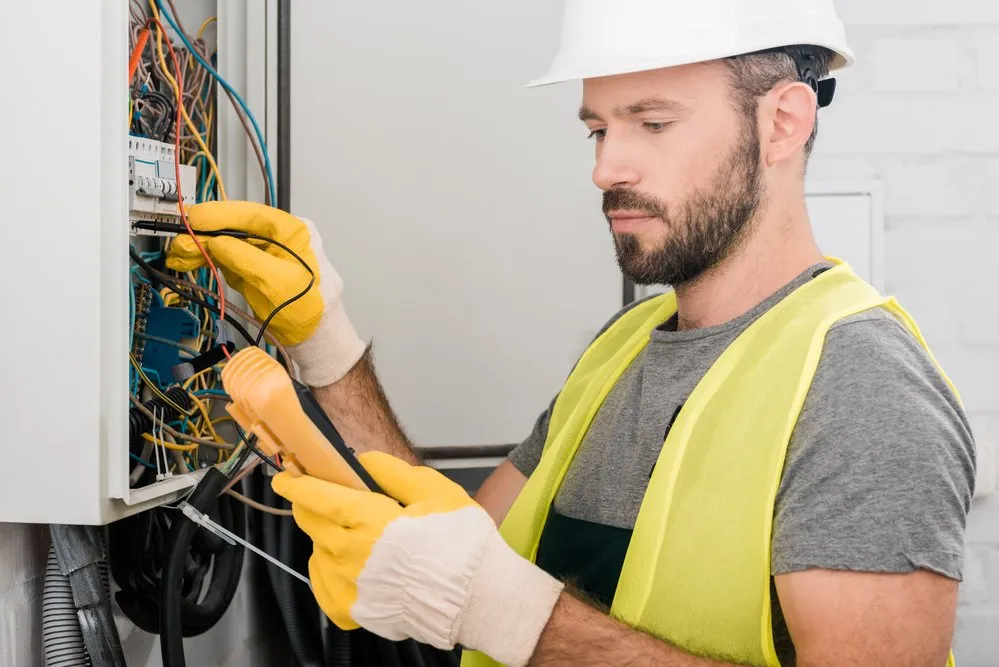Electrical safety is a very important issue. Taking the right precautions will make the difference between having a safe home or office and one that could be dangerous. Professional electricians offer important safety tips for their clients to handle electricity responsibly.
Electrical safety basics.
It’s important to understand some basic principles of electrical safety before diving into specific tips:
- When not handled with care, electricity can be dangerous.
- Electric shocks and fires are among the thousands of electrical accidents that occur each year.
- Knowing how to safely work with or around electrical equipment can save lives and prevent accidents.
Common electrical hazards.
The first step to preventing accidents is to identify electrical hazards. Some common hazards are:
- Extending extension cords and overloading power outlets
- Electrical equipment damaged and exposed wires.
- Conditions wet near electrical equipment
- Incorrect grounding, and defective insulation.
Electrical safety tips
Avoid contact with water and electricity.
Avoid touching electrical appliances and switches with wet fingers.
To prevent electric shock, outlets near water should be GFCI certified.
Overloading outlets is not recommended.
If you plug more than one appliance with a high wattage into the same outlet, it can cause overheating of the wires and electrical fires.
Check cords and plugs regularly.
Check for frayed cords and damaged plugs. Damaged cords should be replaced or repaired immediately.
The correct wattage should be used for all light fixtures.
To prevent overheating, make sure that the bulbs you use match the recommended wattage of your lamps and fixtures.
Electrical safety for DIY enthusiasts.
All electrical work should be left to professional electricians in Auckland who are licensed. DIY enthusiasts must be aware of and adhere to advanced safety measures when working with electrical equipment.
Switch off the electricity.
Always turn off the electricity at the breakers before working on any project. Make sure the area is not energized by using a voltage test.
Insulated tools are recommended.
To reduce the risk for shock, when working with electrical components use tools that have insulated handles.
Wear safety gear.
Wear rubber soled shoes and safety goggles to protect yourself from electric shock.
Parents and caregivers: Safety tips.
Extra precautions are needed to prevent electrical accidents for households with children.
Use outlet covers.
Install childproof covers on all outlets that are not in use. These covers stop anyone from inserting anything into the sockets.
Store electrical devices safely.
Keep appliances such as hairdryers and toasters out of the reach of children. This is especially important in bathrooms and kitchens.
Workplace electrical safety.
Electrical safety in a professional environment is not only an individual duty, but also a collective one:
Lockout/Tagout should be done according to the correct procedures.
Before performing maintenance, shut down the machines and mark them to avoid an accidental start-up or electrical discharge.
Regularly conduct safety audits.
Check for electrical hazards at work. Any problems should be addressed immediately.
Spark of prevention.
Electrical safety is a constant practice, not just a checklist. Follow these above tips to create a safer environment in your home and office. A small spark can prevent fires and accidents.
If you have any questions regarding electrical safety, contact a licensed electrician.
